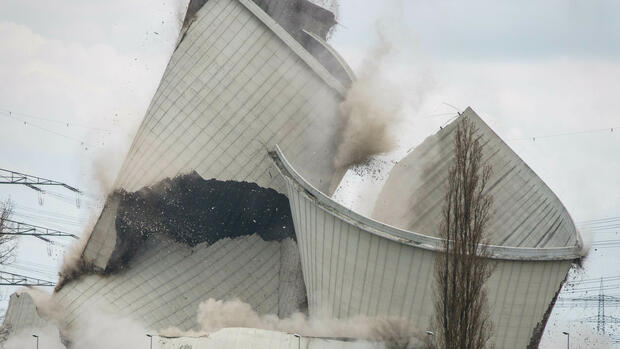The nuclear power plant was shut down after Germany’s nuclear phase-out as a result of the Fukushima disaster in 2011.
(Photo: dpa)
Munich A dinner at Gerhard Schröder’s (SPD) favorite Italian “Roma” in Hanover probably marks the beginning of the end of the nuclear industry in Germany. On July 24, 1990, the newly elected Prime Minister of Lower Saxony, Schröder, outlined the German nuclear phase-out over dry white wine and pasta with Klaus Piltz, then head of the energy company Veba (today Eon).
The meeting was followed by further confidential talks and many rounds of negotiations with electricity managers in the years to come, before the historic nuclear consensus was reached after a long night of negotiations in the Chancellery in June 2000: the red-green federal government agreed with the energy companies on residual electricity quantities for the then 19 nuclear power plants (AKW ) with an average standard term of 32 years.
In 2002, the end of the commercial use of nuclear power was then legally fixed. In the meantime, the nuclear phase-out was lifted again and finally decided again after the reactor accident in Fukushima. But why actually?
RWE board: “Better to do stupid things yourself”
Read on now
Get access to this and every other article in the
Web and in our app free of charge for 4 weeks.
Further
Read on now
Get access to this and every other article in the
web and in our app.
Further
